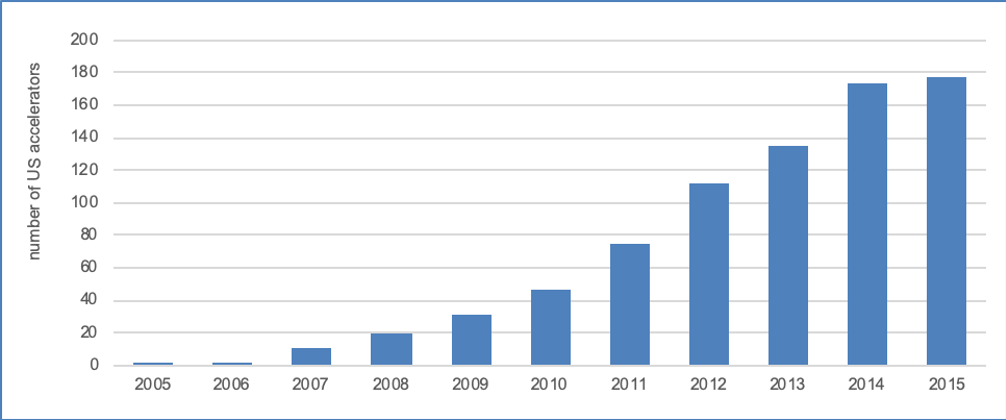To deliver innovations within established corporate structures remains a challenge.
What can Accelerator Programs contribute? And how to set them up successfully?
There is a firm believe that corporate accelerator programs (CAPs) can deliver disruptive digital innovation.
CAPs do unquestionably generate product and service innovations and beyond, support corporations to get access to disruptive digital technologies earlier, to learn faster about external disruption risks and to keep pace with accelerating innovation cycles very effectively.
However, examples, where CAPs brought well-established multinational cooperations into the position to disrupt their ecosystem, are not known. Corporate Accelerator programs are a well-established approach to deliver sustaining innovation. That they do generate disruptive digital innovation is till today a proven misbelieve.
„Producing disruptive innovation is often described as the only way to successfully compete in today’s globalised economy. Examples such as Facebook or Tesla Motors have shaped the anticipation that it will be startups, not established corporations, who come up with the ‘next big thing’ to create uncontested marketspace and disrupt entire industries.“
In 2005 the term accelerator was used the first time in the context of professionally funding and mentoring startups by the Silicon Valley based company Y Combinator, which became famous with the successful development of billion-dollar startups like Dropbox and Airbnb. Then TechStars, was founded in Colorado and is still today a large US accelerator who accompanied above one thousand startups over the years.
These two pioneering and as well very successful programs are the starting points and the inspirations to many accelerator programs launched in the upcoming years with peaking growth towards 2015. The latest numbers are impressive: globally, almost 600 accelerators supported over 11’000 startups with over $ 200m investment annually and have of this amount within Europe only.

The early accelerator programs focused on driving a company’s growth by providing resources and mentorship. With the increasingly lucrative potential of this seed accelerator model, corporations have followed suit.
In 2009 Microsoft created BizSpark, its own startup support program. In addition to driving growth, Microsoft has the added goal to keep themselves up to date with emerging technology and potentially insource technology, talent or the overall startup organisation. And with Unilever, Samsung, Intel, BMW and Orange, to name a few, more CAPs of well-known multinational cooperations were installed over the last decade.
With the increasing popularity of CAPs, the number of studies trying to capture the essence where conducted and frameworks to segment the different approaches created. However, neither the studies nor the proposed frameworks deliver any guidance on defining, measuring and communicating impact.
Indeed, a facts-based CAP framework, including KPI benchmarks requires quantitative field research which will take efforts, time and access to confidential data of participating corporates.
Until such a study-based framework is available, this framework draft might inspire guiding thoughts and bridge the research gap:

